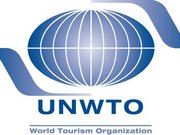Berlin/Madrid – As a complex network of routes spanning over three continents, the success of Silk Road tourism relies heavily upon the ability of tourists to cross borders. This Meeting will bring Ministers of Tourism together to discuss how Silk Road countries can advance the visa facilitation agenda in 2014/2015 and beyond. At the meeting, UNWTO will release the results of its latest visa facilitation report on Silk Road countries and ministers will exchange experiences and strategies for facilitating visas across the regions.
Travel Facilitation and the Silk Road: Why is it important?
UNWTO´s latest Tourism Visa Openness Report shows that between 2010 and 2013, a total of 44 destinations worldwide facilitated the visa process for citizens of 20 or more countries, translating into 6,000 improvements of visa requirements. Many countries and regional blocs have advanced visa facilitation policies by implementing regional agreements, outsourcing visa processing, issuing visas on arrival and establishing e-visa systems.
Yet in spite of these significant advances, on average two thirds of the world’s population still require a visa prior to departure. Restrictive visa issuance policies and complicated entry formalities continue to stifle travel and tourism growth, particularly from emerging economies. According to recent research by UNWTO and the World Travel and Tourism Council (WTTC), supporting visa facilitation will help stimulate the economy and generate employment – as many as 5.1 million additional jobs in the G20 economies by 2015, and 2.6 million new jobs in the Asia-Pacific Economic Cooperation (APEC) economies by 2016.

